Triangle check-list, resentment, fear, guilt and shame-busters
By Tim M. As found in the Big Book of Alcoholics Anonymous
The AA symbol—the triangle in the circle—represents the wholeness, the soundness of mind, body, and spirit, that comes from living inside the triangle it contains, the triangle of recovery, unity, and service.
This will serve as a check-list for anyone concerned with slipping from the grace of God or identifying where the shortfall or deficiency may be in their application of the program
Recovery
Steps One–Nine
Do I have a sponsor who practices the Twelve-Step program of recovery set out in Alcoholics Anonymous (‘Big Book’)?
Is my sponsor taking me through the first nine Steps?
Which Step am I on? Which part of that Step am I currently practicing? What action am I taking today on that Step?
If I am blocked, is that because I am unclear what to do next, or is the problem lack of willingness?
How soon can I call my sponsor to discuss what action to take to remove the block?
Bill Wilson and his sponsor Ebby Thatcher
Steps Ten–Twelve
Am I practicing Step Ten today, throughout the day
Did I carry out the ‘when we retire at night’ Step Eleven exercise last night?
Did I carry out the ‘on awakening’ Step Eleven exercise this morning?
Am I pausing when agitated or doubtful?
Am I making and taking every opportunity to give away everything I have learned and been shown in AA to those who are newer or struggling more than me?
Is there any area where I am not practicing Steps Ten to Twelve?
Unity
“But there exists among us a fellowship, friendliness, and an understanding which is indescribably wonderful… The feeling of having shared in a common peril is one element in the powerful cement which binds us, but that in it self would never have held us together as we are now joined.
The tremendous fact for every one of us is that we have discovered a common solution. We have a way out on which we can absolutely agree, and upon which we can join in brotherly and harmonious action. This is the great news this book carried to those who suffer from alcoholism.” (17:2–3)
“Life will take on new meaning. To watch people recover, to see them help others, to watch loneliness vanish, to see a fellowship grow up about you, to have a host of friends—this is an experience you must not miss. We know you will not want to miss it. Frequent contact with newcomers and with each other is the bright spot of our lives.” (89:2)
“Any two or three alcoholics gathered together for sobriety may call themselves an A.A. Group, provided that, as a group, they have no other affiliation.” (Tradition Three, Long Form)
Am I going to meetings of a fellowship(s) where people have the same addiction(s) as me?
At those meetings, do I talk as much or more about this solution as I do about the common problem?
Am I joining in before, during, and after these meetings?
In between meetings listed in the meetings directory,
Do I spend time on the phone and in person sharing experience on the solution to our common problem?
Do I have fellowship with people who are newer, people who are peers, and people with more experience? (The whole fellowship or do I just click with the clique)
Service
“For if an alcoholic failed to perfect and enlarge his spiritual life through work and self-sacrifice for others, he could not survive the certain trials and low spots ahead, If he did not work, he would surely drink again, and if he drank, he would surely die. Then faith would be dead indeed. With us it is just like that.” (14:6)
“Our very lives, as ex-problem drinkers, depend upon our constant thought of others and how we may help meet their needs.” (20:0)
“We had a new Employer. Being all powerful, He provided what we needed, if we kept close to Him and performed His work well.” (63:1)
“Our real purpose is to fit ourselves to be of maximum service to God and the people about us.” (77:0)
“Your job now is to be at the place where you may be of maximum helpfulness to others, so never hesitate to go anywhere if you can be helpful.” (102:2)
Do I perform group-level service (‘unity commitments’)?
Do I perform service which involves carrying the message (sponsorship, helping newcomers understand the basics of the program, public information/health liaison work, etc.)?
Do I apply this principle in all my affairs: “Do not think of what you will get out of the occasion? Think of what you can bring to it,” (102:0) and follow through with practical action?
Step Ten basic instructions (84–85)
We continue to watch for selfishness, dishonesty, resentment, and fear, as we go through the day.
When these crop up,(as they will) we ask God at once to remove them. Note there is no analysis. Do not seek to ‘understand’ as a method of ‘processing’ these. Understanding comes automatically from this process. (Note that we ask God at once, not at the end of the day.)
We discuss them with someone immediately. Apply this if you are so deeply involved in your own drama you cannot function. Otherwise, get on with being helpful wherever you are.
We make amends quickly if we have harmed anyone.
Then we resolutely turn our thoughts to someone we can help. Take whatever action suggests itself on the basis of this.
When disturbed, we ask God to show us how to be loving and tolerant. We use love and tolerance as our yardsticks for making decisions and treating others.
“God, have me watch for selfishness, dishonesty, resentment and fear,
When these crop up in me, have me immediately ask you to remove them from me and have me discuss them with someone. God, help me quickly to make amends if I have harmed anyone and have me resolutely turn my thoughts to someone I can help. Have me be loving and tolerant of everyone today. Amen.”
“God, have me carry the vision of your will into all my activities. How can I best serve you? Your will be done! Have these thoughts go with me constantly. Have me exercise my will power along this line. God, the Source of all knowledge and power, grant me strength, inspiration, and direction, may Your Spirit flow into me. Amen.”
Step Eleven basic instructions (86–88)
At the end of the day, carry out a 5–10 minute review of the period since the last review. This is part of the evening meditation. Start with realizing that a loving God is present with you. Then ask God to show you the truth. Do not beat yourself up for what you find.
Were we resentful, selfish, dishonest, or afraid? Pick the top one of each and resolve to discuss with a sponsor or friend the next morning.
Do we owe an apology? Make a list of people to apologies or make amends to the next day, where applicable.
Have we kept something to ourselves which should be discussed with another person at once? Make a list of such matters and with whom they will be discussed with.
Were we kind and loving toward all?
What could we have done better?
Were we thinking of ourselves most of the time?
Were we thinking of what we could do for others, of what we could pack into the stream of life?
Were we careful not to drift into worry, remorse, or morbid reflection?, for that would diminish our usefulness to others.
Ask God’s forgiveness (and know that it will be totally given).
Inquire (of God) what corrective measures should be taken. Keep it simple (a couple will do). Check them out with someone with more experience in the program if you are new to this or unsure.
At the beginning of the day: (Upon Awakening)
We ask God to direct our thinking.
We ask God especially that our thinking be divorced from self-pity, dishonest or self-seeking motives.
We consider our plans for the day. If we have none, we ask God to show us how to be useful and draw up plans.
We consider how the corrective measures from the night before can be applied.
We ask that God show us the way of patience, tolerance, kindness, and love (83:2).
We ask God to show us how we can help anyone who is suffering from alcoholism (164:2).
If we face indecision:
We ask God for inspiration, an intuitive thought, or decision.
We relax and take it easy. We don’t struggle.
We pray some set prayers that emphasize the principles of AA.
We read some spiritual literature and ask God to show us how we can apply it to our day.
Finally, we pray that we be shown all through the day what our next step is to be, that we be given whatever we need to take care of such problem. We ask especially for freed from self-will, and are careful to make no request for ourselves only. We may ask for ourselves, however, if others will be helpel
If agitated or doubtful:
We ask God for the right thought or action.
We constantly remind ourselves we are no longer running the show.
We say to ourselves many times each day “Thy will be done.”
Resentment buster (64–67)
Use this when you are angry, resentful, hurt, threatened, sore, burned-up, or injured, are holding a grudge, or are feeling your life is being ‘interfered with’.
Do I want to be free of this anger, resentment, etc?Do I want to continue being dominated by the actions of others or my own failings?
I realize that the person who I think (real or imagined) has harmed me , maybe spiritually sick—driven by a hundred forms of fear; self-delusion, self-seeking, and self-pity—just like me. The harm—real or fancied—is not personal. It is an expression of their self-centeredness, just like my harm to others.
I ask God to help me see things from their point of view (to share their reality without fear of judgment or change) and to show them tolerance, pity, and patience, as I would want for myself.
I pray this prayer: “This may be a sick man. How can I be helpful to him? God save me from self righteous anger and judgment, Thy will, not my will be done.” (Note that I am the one who needs saving, not him.)
I avoid retaliation or argument (including mental as well as emotional).
I ask God to show me how to take a kindly and tolerant view of the person.
When thoughts of the resentment reoccur, I bless the delinquent thought and myself and get on with my day.
Fear buster (68)
I realize I am scared because I think I will not gain something or lose something I need to be happy or satisfied. Self-reliance has failed me.
I realize that God can provide whatever I need if I stay close to Him and perform His work well.
I make the decision to trust infinite God rather than my finite self.
I make the decision to let Him demonstrate through me what He can do.
I ask Him to remove my fear and direct my attention to what He would have me be both in relation to the situation in which the fear is arising, and right here, right now, in the situation I am actually in. (in the moment)
Examples of what He would have me are (pages 77–83 and elsewhere):
I am to be, Patient, tolerant, kind, loving, understanding, sensible, tactful, helpful, forgiving, calm, frank, open, considerate, humble, quiet, sane, etc.
Guilt and shame buster (28, 76–83)
Make amends now for recent harms.
I find the person I need to make amends to and ask for a little time to talk.
I list the wrongs.
I express regret. I say I was wrong.
I ask if there is anything else I have done wrong.
I ask what I can do to make things right.
I do it. (to know it, and not to do it, is not to know it)
A few thorns to prick the memory
“It should not matter, however, if someone does throw us out of his office. We have made our demonstration, done out part. It’s water over the dam.” (78:1)
We all get to make mistakes. If I make amends, I then have to treat the matter as dealt with. I cannot wait remorsefully for the forgiveness of others.
“… all of us, whatever our race, creed, or color, are the children of a living Creator with whom we may form a relationship upon simple and understandable terms as soon as we are willing and honest enough to try.” (28:2)
“… An intelligent agent spearheads of God’s ever advancing Creation …” (49:1)
This means I am of infinite value, as a child of God, as are you, and cannot be worth more or less than anyone else, whatever I do or do not do. Without us, nothing can be achieved. We are all of vital importance in God’s creative endeavor.
“… Humble without being servile or scraping. As God’s people we stand on our feet; we don’t crawl before anyone.” (83:3)
Humility is like underwear, essential unless it shows, then it’s indecent.
Thanks Tim
See you on the radio
RumRadio.org
Joseph


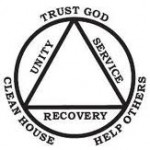
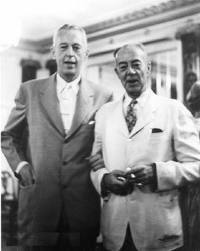
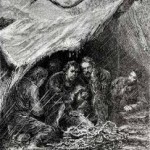







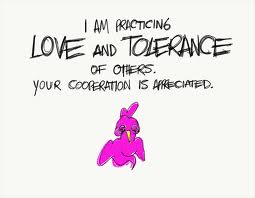
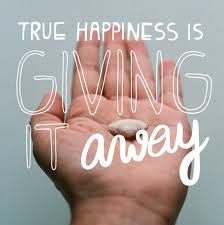
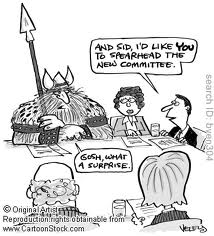

Latest Comments